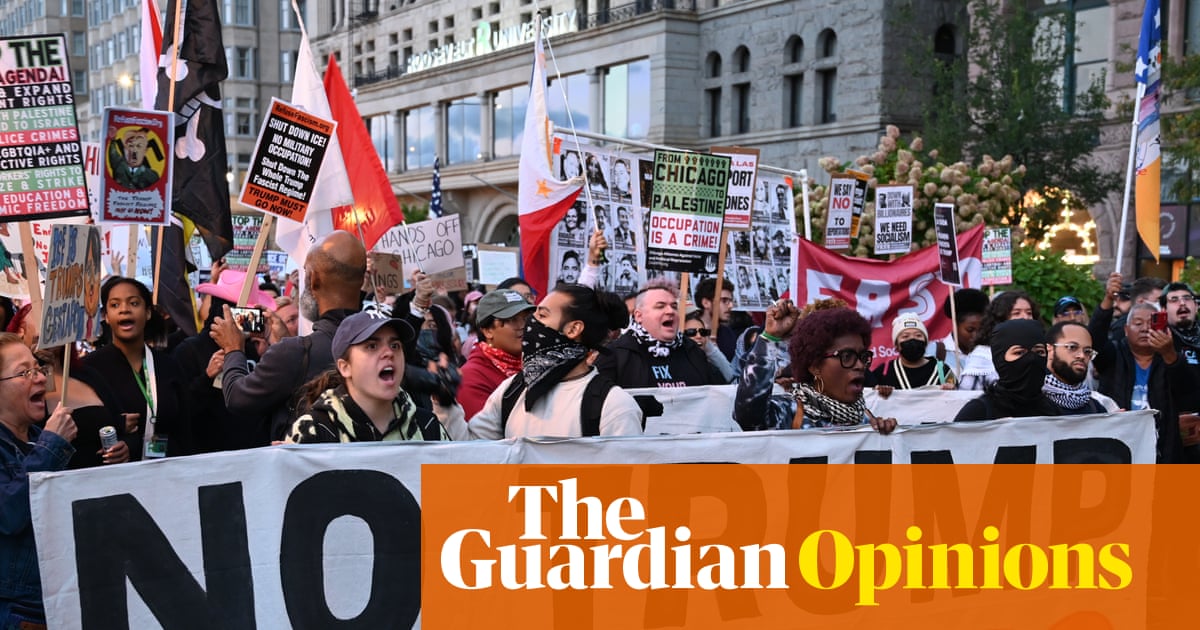I have always called Chicago home.
My mind and my body are in Australia, but over the last week my home has come back to me in flashes.
In a video of masked men with rifles roaming through the streets under the cover of darkness.
In livestreams of people being pulled from their cars in broad daylight, in posts that some critics say resemble authoritarian propaganda.
Images like this will haunt me for the rest of my life, the same way I believe the images that emerged from El Salvador will, after the Trump administration deported more than 200 people with little to no due process, live on as a stain on the American republic.
I am told my family and friends are safe, but you hear about those that are gone.
As I scroll through my social feeds, I see community action groups trying in vain to locate those they have been unable to contact.
The everyday reality for my former community feels a world away from the current political moment in Australia.
The national guard arrived at a US army reserve base just outside Chicago last week. Although a judge temporarily blocked the Trump administration from federalising or deploying the national guard in Illinois, immigration enforcement officers remain a fear for many.
On Wednesday, Trump wrote on Truth Social, calling for the incarceration of Chicago Democrats: “Chicago Mayor should be in jail for failing to protect Ice Officers! Governor Pritzker also!”
I am often overcome by the question: could I have done more?
On the ground in cities across the US, journalists are doing everything they can to cover the effect on those most targeted by the Trump administration’s increasingly authoritarian actions.
I hold the deepest admiration for my Guardian and non-Guardian colleagues in the US, and hope our coverage in Australia builds on and contributes to the work they do every day.
But the question that won’t escape my mind is: what could I have done as a citizen, a member of the community, back when I walked the streets that the state of Illinois now says are under threat of occupation, to help arrest the rise of the far-right politics that led us here?
In Australia, our politics are very different. But we are not immune to the anti-democratic ideas that have flourished around the globe.
We can see this in the rise in support for parties such as One Nation, as well as the anti-immigration rallies that popped up around the country.
In Melbourne, Nazis felt empowered to walk the streets.
It is true there are many lines of defence against this small shift towards the right in Australia, both political and cultural. Much has been said about compulsory voting, our electoral system and the most recent election where the electorate turned towards the centre and away from Trumpism.
But professor and fascism expert Jason Stanley recently told Guardian Australia that Australia’s history – our colonial past and our recent treatment of asylum seekers – makes us extremely vulnerable.
“You guys are probably next, right? The first domino to go.”
So if there is a lesson here, it is that I never again want to have to look back and wonder, could I have done more?
I may never be able to answer that question, but in his latest book, Ta-Nehisi Coates presents an aspiration for those of us who feel called to write. It is our job, he says, to do “nothing less” than our part “to save the world”.
Grandiose? Yes. But maybe the best line of defence against the rise of the far right in Australia is us.


